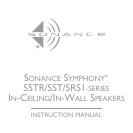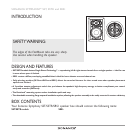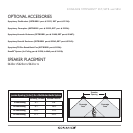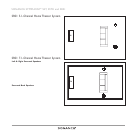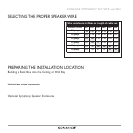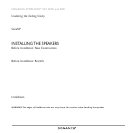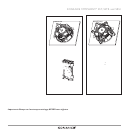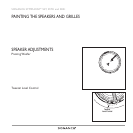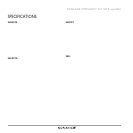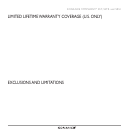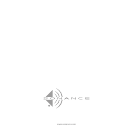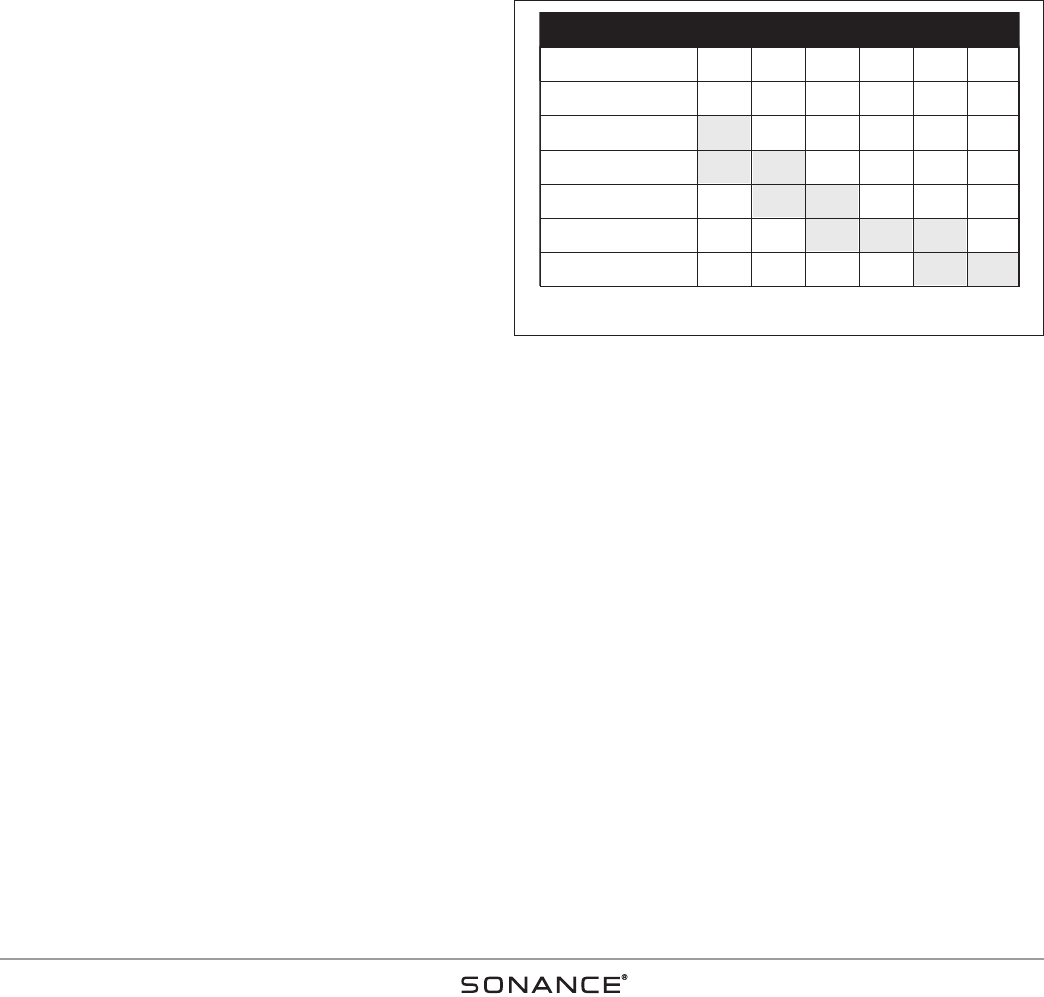
6
SONANCE SYMPHONY
®
SST, SSTR and SRS1
SELECTING THE PROPER SPEAKER WIRE
For the best sound we recommend that you use premium Sonance
MediaLinQ
®
speaker cable, which also complies with UL fire rating codes.
You may also experiment with audiophile brands of speaker cable and
interconnects, but be sure to check local codes governing wire that may
be installed within walls or ceilings. Different brands of wire can have
different sonic characteristics, and some may be more compatible with the
sonic “signature” of your various audio system components.
For the best sound you should never use thin-gauge speaker wire – it
will constrict the sound and diminish bass response. Extra resistance in
the speaker wire can make a speaker sound less dynamic and reduce
definition of the bass frequencies. In extreme cases, it can even
attenuate high frequencies. Also, amplifier power is wasted in thin wire
with extra resistance, reducing your system’s maximum output level. To
prevent degrading sound quality, the total wire resistance should be less
than 10% of the speaker’s impedance. This means that for an 8-ohm speaker, the total resistance of the wire should be less than 0.8 ohms. Refer to
Figure 5
when selecting the proper wire gauge for your system.
PREPARING THE INSTALLATION LOCATION
Building a Back Box into the Ceiling or Wall Bay
Sonance Symphony SST/SSTR and SRS1 speakers are designed to provide exceptionally musical performance in a wide variety of enclosure volumes. You can
get the very best performance from your speakers by partitioning a section of the ceiling or wall bay to form a sealed back box with a specific internal
volume. Building such an enclosure will create a dramatic improvement in your speakers’ bass performance and power handling.
Ideal back box volume requirements:
Symphony S623
SST: 1.5 ft
3
Symphony S621
SSTR: 1.0 ft
3
Symphony S623SSTR: 1.5 ft
3
Symphony SRS1: 1.0 ft
3
Optional Symphony Speaker Enclosures
For installations where it isn’t possible to partition the ceiling bay into a back box, installing optional Symphony Acoustic Enclosures (SSTR/SRS1 part #
91688; SST part # 91687) will noticeably improve your speakers’ bass performance and power handling and will significantly reduce sound transmission into
adjacent rooms and spaces. These enclosures are made from ½”-thick MDF and are designed to be installed in new construction only.
To reduce sound transmission into adjacent rooms in installations where it isn’t possible to install a Symphony Acoustic Enclosure (such as when you’re
retrofitting the speakers into an existing ceiling), you can fit the speakers with optional Symphony Retrofit Enclosures (SSTR/SRS1 part # 92343; SST
part # 92342). These enclosures are designed specifically to be used with Symphony-series speakers, and will noticeably reduce sound “spillover” from the
rears of the speakers into adjacent rooms and spaces.
Wire resistance in Ohms vs. length of cable run
Distance in Feet 50' 100' 150' 200' 250' 300'
1.04
.65
.41
.26
.16
.10
18 gauge
16 gauge
14 gauge
12 gauge
10 gauge
20 gauge
2.07
1.30
.82
.52
.32
.20
3.11
1.96
1.22
.77
.49
.31
4.14
2.61
1.63
1.03
.65
.41
5.18
3.26
2.04
1.29
.81
.51
6.22
3.91
2.45
1.55
.97
.61
Figure 5: Speaker Wire Resistance Table



